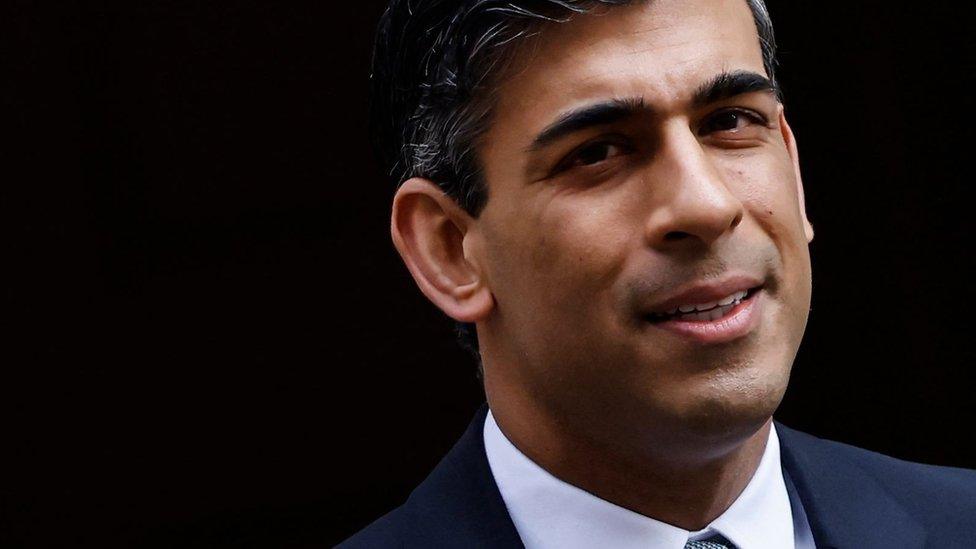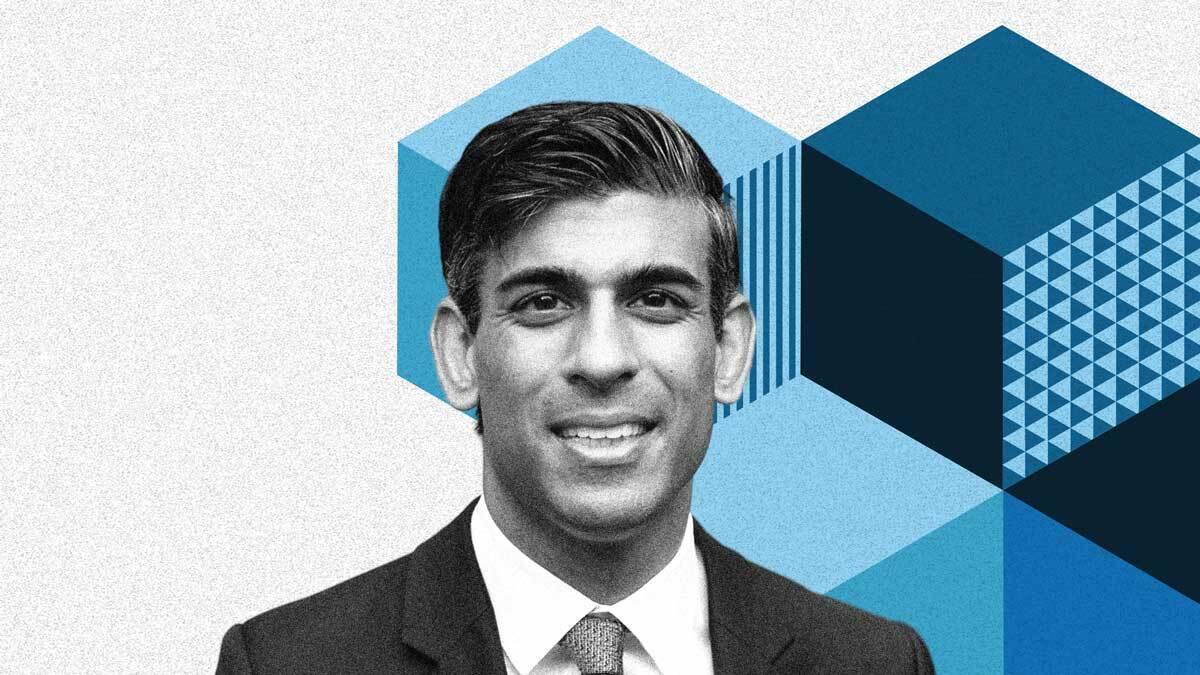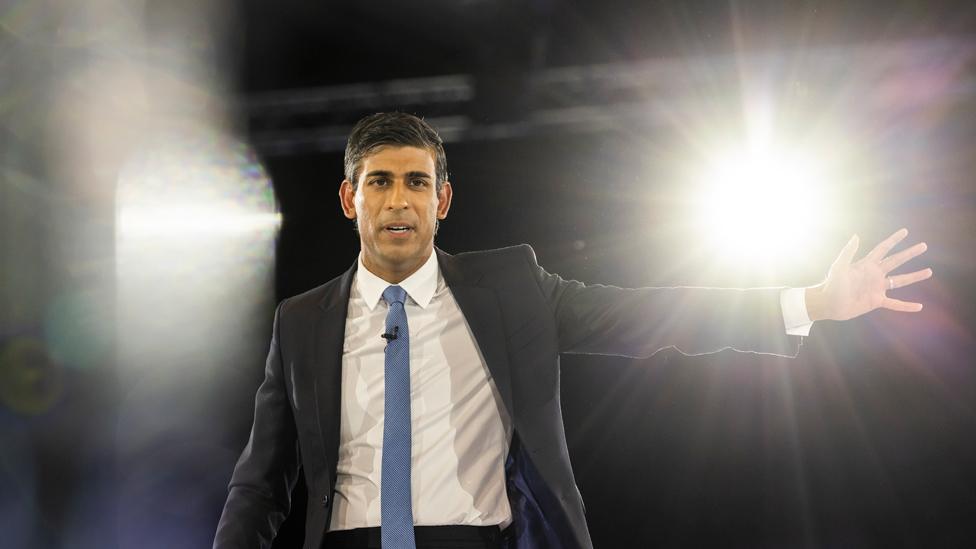Rishi Sunak: The most urgent problems facing the new prime minister
- Published

Rishi Sunak has become the UK's new prime minister, replacing Liz Truss. He inherits a number of challenges from his predecessor, as BBC correspondents explain.
Fixing the economy
by Faisal Islam, Economics Editor
Rishi Sunak enters No 10 having made very few promises in his leadership campaign, but as chancellor he warned about the danger of rapidly rising prices.
A key challenge for him will be what to do with the Energy Price Guarantee - the subsidy scheme to help homes and businesses cope with higher gas and electricity bills. Under Liz Truss, the scheme was set to last for two years. New Chancellor Jeremy Hunt then announced that the guarantee would only last until April.
We know Mr Sunak was also cautious about offering the scheme beyond that point. But a typical household energy bill - now £2,500 - could rise to more than £4,000 next spring, sending inflation rocketing.
Meanwhile, Mr Sunak had guaranteed that benefits, tax credits and pensions would rise in line with the recent inflation rate of 10.1%. But with a huge borrowing gap of £30-40bn, it is not clear whether that promise still holds.
At the moment, the financial markets trust Mr Sunak, which makes the economic repair job he has to do easier. Markets have sent government borrowing costs lower and this in turn could lead to more favourable mortgage rates. It could also mean we see the Bank of England raise interest rates by a smaller amount.

Where to make NHS savings
by Nick Triggle, Health Correspondent
With record numbers waiting for hospital treatment and the threat of strikes over pay and winter just around the corner, Mr Sunak will be firefighting from day one. Any attempts to introduce his own policies and vision are likely to have to wait.
During the summer, Mr Sunak spoke on several occasions about waste and bureaucracy, floating the idea of a vaccine-style taskforce to improve efficiency, and charging patients £10 for missed appointments.
There is scepticism within the health service about the merits of these ideas, but they suggest he will take a tough line in terms of savings - perhaps not cutting the budget, but asking the service to do more with the same amount - and try to get on top of the backlog faster than has been timetabled for so far.
Key to this will be tackling delayed discharges - the patients who are ready to leave hospital but cannot because of a lack of care available in the community. The fact Mr Sunak was willing to raise National Insurance contributions - a move now scrapped - to help increase investment in the NHS points to this being an immediate area of focus.

Workers striking over pay
by Theo Leggett, Business Correspondent
Tens of thousands of workers have already downed tools this year, among them train drivers, dock workers, mail employees, criminal barristers and telecoms staff. University lecturers have just voted for strike action, while nurses, junior doctors and teachers are among those considering strikes.
Although most disputes involve a range of issues, the common factor has been pay. Price rises are pushing up the cost of living, and wages have not been keeping up.
So unions are flexing their muscles to demand more money for their members. But if companies pay their workers more, they may have to charge higher prices for what they produce or sell - meaning higher prices for everyone.
A government already struggling to balance its books is unlikely to want to pay public sector workers much more either. But the new prime minister will be desperate to avoid the current bout of industrial unrest gathering momentum.
Legislation to limit the impact of transport strikes is already on the table. But it is likely the priority will be to solve the problem at source - and that means controlling inflation.

Supporting Ukraine and defence spending
by James Landale, Diplomatic Correspondent
UK policy towards Ukraine will not change under Mr Sunak. While standing for the leadership in the summer, he said he would maintain Britain's backing and make an early visit to Kyiv. "If I become prime minister, I will redouble our efforts and reinforce our policy of total support for Ukraine that Boris has so ably led," he said.
But continuing to give Ukraine military support in the long term will cost money, and there is uncertainty over Mr Sunak's approach to defence spending.
Ms Truss promised to increase defence spending from 2% to 3% of national wealth - measured by gross domestic product - by 2030. But Mr Sunak has said that target was "arbitrary" and "not a plan".
He may also have to face the challenge of supporting Ukraine when doing so becomes less popular politically. With rising energy costs exacerbating the cost-of-living crisis, Mr Sunak may have to persuade voters their financial discomfort is a price worth paying to defend Ukraine.

Northern Ireland Protocol
by Chris Andrews, BBC NI
Rishi Sunak faces the same problematic Northern Ireland in-tray which awaited Ms Truss in September.
There is still no Northern Ireland Executive, and the legislative assembly cannot function. Talks continue on the Northern Ireland Protocol, but, as yet, there is no resolution which would satisfy the Democratic Unionist Party (DUP).
It has blocked normal government in Belfast in its protest against the protocol, meaning a key deadline looms large. Unless the DUP drops its demands or emergency legislation is rushed through by 28 October, then an election must be held within 12 weeks - which could mean a second assembly election in the space of a year.
During hustings in Belfast in August, Mr Sunak pledged to progress a bill to override much of the protocol, but his preference would be a negotiated compromise.
Without imminent progress, Stormont's power will shift from local ministers to the secretary of state and civil servants within days. Festive cheer could be in short supply unless someone blinks.
Related topics
- Published5 July 2024

- Published23 May 2024
